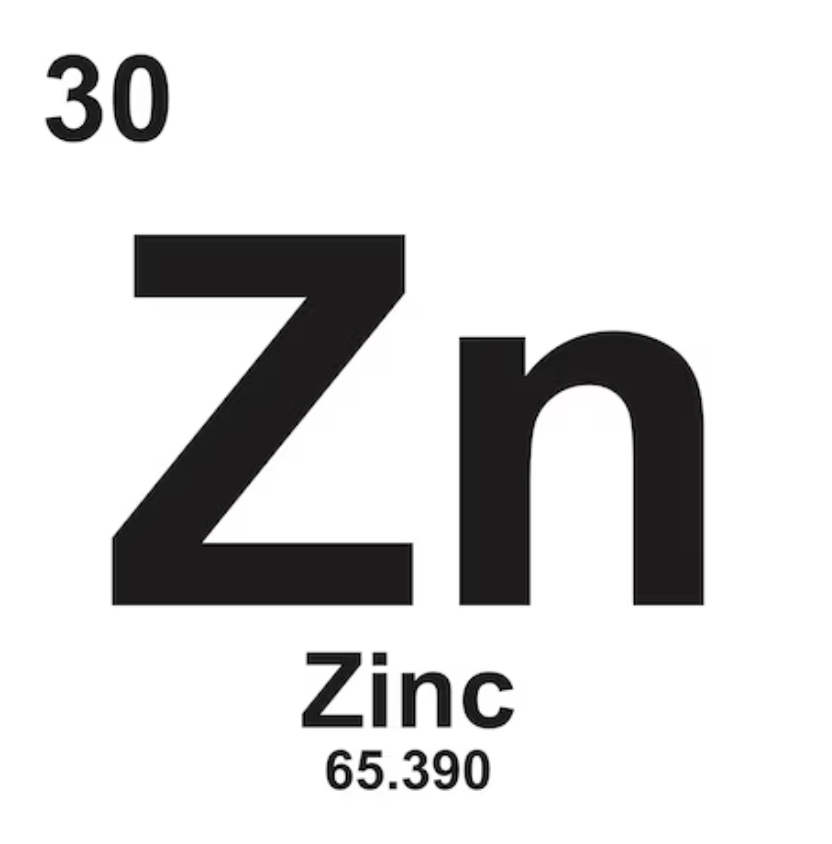Zinc
Longevity Benefits
- Supports DNA repair.

Quantity of ingredient in each package
Method of consumption, and precautions
Production process and inspection.
Unlocking Longevity: The Power of Zinc
Zinc, often overlooked, plays a critical role in numerous bodily functions and is emerging as a key player in the pursuit of a longer, healthier life. This essential mineral isn't just about preventing colds; it's a potent antioxidant that supports cellular health, immune function, and overall longevity.
Why Zinc for Longevity?
- Robust Antioxidant: Zinc helps protect cells from oxidative stress, a major contributor to aging. Oxidative stress occurs when harmful free radicals damage cells and DNA. Zinc-containing enzymes act as powerful antioxidants, neutralizing these harmful molecules.
- Immune System Booster: A strong immune system is crucial for fighting off infections and diseases, both of which become more prevalent with age. Zinc plays a vital role in immune cell function, helping the body effectively combat infections and maintain overall health.
- DNA Protection: Zinc is essential for DNA repair and replication. As we age, our DNA accumulates damage. Zinc helps ensure accurate DNA replication, reducing the risk of age-related diseases.
- Mitochondrial Support: Zinc is crucial for mitochondrial function, the powerhouses of our cells. Mitochondria produce energy, and their proper function is essential for overall cellular health and longevity.
- Hormonal Balance: Zinc plays a role in the production and regulation of various hormones, including testosterone and estrogen. Maintaining hormonal balance is crucial for healthy aging.
Signs of Zinc Deficiency:
- Frequent infections
- Slow wound healing
- Hair loss
- Skin problems
- Loss of appetite
- Delayed growth and development (in children)
Incorporating Zinc into Your Longevity Routine:
Dietary Sources: Include zinc-rich foods in your diet, such as:
- Seafood (oysters, crab, shrimp)
- Meat (beef, poultry)
- Beans and legumes
- Nuts and seeds
- Whole grains
Supplementation: Consider a high-quality zinc supplement to ensure you're meeting your daily requirements, especially if you have a deficiency or follow a restrictive diet.
Disclaimer:
This blog post is for informational purposes only and does not constitute medical advice. Consult with a healthcare professional before 1 starting any new supplement.
Zinc, often overlooked, plays a critical role in numerous bodily functions and is emerging as a key player in the pursuit of a longer, healthier life. This essential mineral isn't just about preventing colds; it's a potent antioxidant that supports cellular health, immune function, and overall longevity.
Why Zinc for Longevity?
- Robust Antioxidant: Zinc helps protect cells from oxidative stress, a major contributor to aging. Oxidative stress occurs when harmful free radicals damage cells and DNA. Zinc-containing enzymes act as powerful antioxidants, neutralizing these harmful molecules.
- Immune System Booster: A strong immune system is crucial for fighting off infections and diseases, both of which become more prevalent with age. Zinc plays a vital role in immune cell function, helping the body effectively combat infections and maintain overall health.
- DNA Protection: Zinc is essential for DNA repair and replication. As we age, our DNA accumulates damage. Zinc helps ensure accurate DNA replication, reducing the risk of age-related diseases.
- Mitochondrial Support: Zinc is crucial for mitochondrial function, the powerhouses of our cells. Mitochondria produce energy, and their proper function is essential for overall cellular health and longevity.
- Hormonal Balance: Zinc plays a role in the production and regulation of various hormones, including testosterone and estrogen. Maintaining hormonal balance is crucial for healthy aging.
Signs of Zinc Deficiency:
- Frequent infections
- Slow wound healing
- Hair loss
- Skin problems
- Loss of appetite
- Delayed growth and development (in children)
Incorporating Zinc into Your Longevity Routine:
Dietary Sources: Include zinc-rich foods in your diet, such as:
- Seafood (oysters, crab, shrimp)
- Meat (beef, poultry)
- Beans and legumes
- Nuts and seeds
- Whole grains
Supplementation: Consider a high-quality zinc supplement to ensure you're meeting your daily requirements, especially if you have a deficiency or follow a restrictive diet.
Disclaimer:
This blog post is for informational purposes only and does not constitute medical advice. Consult with a healthcare professional before 1 starting any new supplement.
